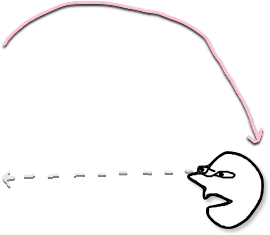I’m not asking about ads in general, but it might be part of the same behavior. I mean the trend of showing media/art like Finding Nemo and people immediately going  with the message and buying endangered fish.
with the message and buying endangered fish.
Is this commodity fetishization, and if so, what are things an artist or creator can do to curb that? Is this something that is considered the responsibility of the creator?
Can anybody suggest readings or authors that shed light on this problem or possible solutions?


It’s not commodity fetishization (that is a specific Marxist concept about social relations to production), it is consumerism under capitalism, nost acutely seen in the imperial core where the acquisition of commodities has become a substitute for self-identity, hobbies, and friendly socialization. Your example is also about being inconsiderate or unthinking, which is also a socialized behavior.
It is fairly dense, but you may appreciate reading The Society of the Spectacle. If you aren’t already up on your Marx you may need to read it twice with some reviews of Capital in between, particularly its jargon. But it is all about thr extension of commoditization to society, media, thought, and basic social fabric, and that is fundamentally what you’re describing.
Re: people being inconsiderate well, I think that ultimately comes down to how we are raised and taught, and currently that is dictated by capitalism to be (often dysfunctional) nuclear families, fairly abusive school systems, and petty tyrannies at work, and all of those things contribute. That’s challenging to untangle quickly, but even just overhauling those things with basic socialist approaches would surely help. For parents and their children, economic stability and free time, free and community-enriching “third places”, housing stability and good schools (less need to move around unless you want to). For students, education with well-paid teachers and minimized influence from small business tyrants or desperate people in crisis. For workers, more democratic workplaces and a clearer sense that there is a tangible social benefit to what is produced.